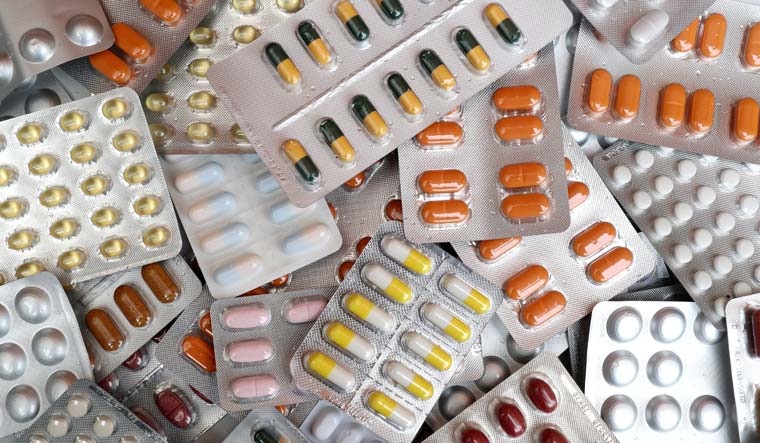The second president of the US, John Adams, famously said, “Every problem is an opportunity in disguise.” Taking that to heart seems to be the way forward for India’s pharmaceutical industry. The COVID-19 aftermath has plunged the industry into crisis mode, but it could just be the rude wake-up call it needed to set it on course correction.
Government largesse, in the form of the Union cabinet announcing this weekend to set up bulk drug parks as well as other stimulus measures to boost local manufacturing, has come as an additional shot in the arm.
Despite its flourishing business — India’s pharma industry is the third largest in the world—its Achilles heel was exposed early on as the coronavirus scare hit China. For years, Indian drug makers had turned to China for supply of raw materials, including active pharmaceutical ingredients (APl) like paracetamol and aspirin, which are used in making antibiotics and other essential drugs, as well as key starting material (KSM) that form the basic building block for drug formulations.
“In some specific bulk drugs, the import dependence 80 per cent to 100 per cent,” according to a note put up before the Union cabinet at its latest meeting.
This, despite the fact that at least some of them were available locally, too. “(While) in some products our hands are really tied (where) a special mineral is available only in China…for many products there are alternatives available in India,” Kushal Suri, head of international business development at Morepen Laborataories told THE WEEK. Yet, Indian pharma companies were importing these from China. The reason? Cost. Suri added, “Twenty years ago, everything got produced in India, but the way Chinese products became cheaper in due course of time, their production in India became totally unviable.”
But with factory shutdowns in China and disruption in supply chain, things have again come a full circle. “At current prices, these products have again become viable to manufacture in India,” pointed out Suri.
With API and KSM supply and shipping from China getting affected, rating agency ICRA had, last month, revised its outlook on the Indian pharmaceutical industry to ‘negative’ from ‘stable’. Around 60 per cent of raw materials in Indian pharma industry was imported, mainly from China. For certain APIs, China accounts for up to 70 per cent, while it is the exclusive supplier when it comes to many KSMs.
Industry body CII too jumped in with its own analysis on how Indian industry will be affected by Chinese shutdowns. It pointed out how India’s pharmaceutical industry faced a cost disadvantage with China and called on the central govt to “Take active measures by procuring KSMs and APIs and fast track approval processes and immediate environmental clearances so that Pharma companies can start manufacturing APIs locally.”
Government, too, has obliged. The union cabinet, this weekend, cleared a slew of measures to promote manufacturing of APIs and KSMs within the country. This include a 3,000 crore project to set up three bulk drug parks in co-ordination with three states, as well as a 20% financial incentive for the next 6 years for manufacturers to make 53 critical bulk drugs, which are in turn used to make medicines. “The scheme is expected to reduce manufacturing cost of bulk drugs in the country and dependency on other countries for bulk drugs,” said a government note after the cabinet announcement.
“India should not look at these bulk drug parks only for Domestic requirement. China became big supplier because of scale which looked into both domestic and export requirement,” said S. Sridhar, India managing director of pharma giant Pfizer. “Government should work with Industry not just for domestic capacities but fulfilling global export demands too.”
Referring to the shift in the domestic industry post-Covid, Morepen’s Suri added, “The current crisis is a blessing in disguise and a valuable opportunity to again become a preferred supplier of pharma products for the world.”



